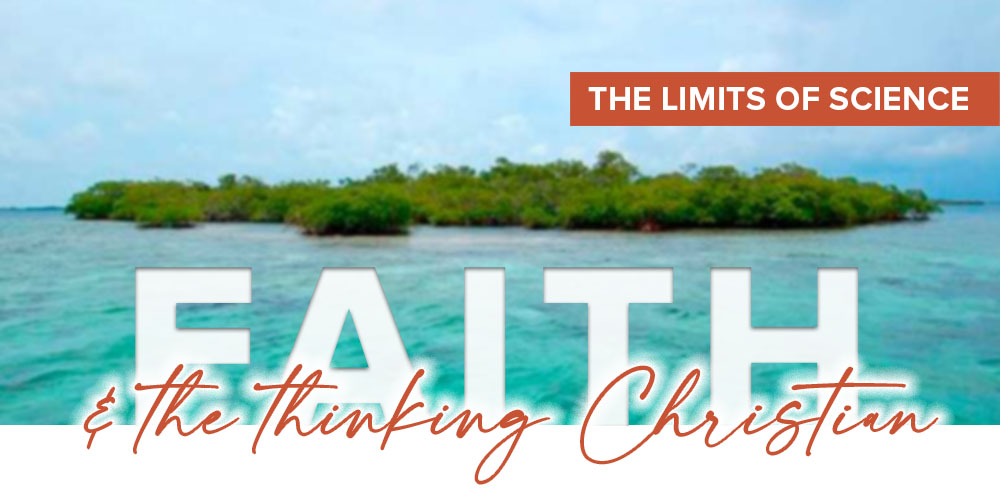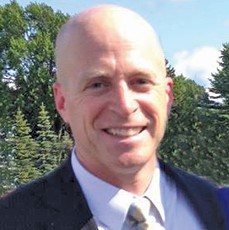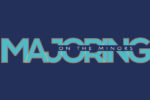 |
A friend recently joked that he was going to legally change his name to “The Science.” With so many people claiming they “follow the science” these days, my friend would be quite popular!
Jokes aside, the benefits we enjoy from science are countless. But I’m tired of hearing, “We follow the science.” It’s vague, perhaps purposely so. If someone asked them what they meant by that, and they clarified that they include cutting-edge research as part of their problem-solving and decision-making, then fair enough.
Science vs. scientism
But some mean more than that, claiming that science can actually lead us down whatever clear path it will uncover. That misunderstands what science can do. Science is a tool in the hands of people. It is not our leader that can prescribe for us what path to take. It is descriptive, not prescriptive: It describes how nature behaves, not how people should behave. That’s the arena of morality and ethics. People can certainly include the latest scientific research to help make decisions based on moral truth. But then they are following their moral standards, not science.
Some go even further and claim that science is the ultimate revealer of truth—that it will explain everything if we just give it enough time. That’s not science. That’s scientism—the belief that the natural sciences alone can unlock the deepest mysteries of reality. The idea is that mankind, in an unscientific age, used to be ignorant of so much of how nature worked. But now that science has expanded the understanding of our world, the unanswered gaps of knowledge have shrunk—and along with it, our need for belief in God.
It is critical to understand and identify the difference between science and scientism. Believers in scientism take science beyond its natural limits. Science, properly understood, is a human activity to understand better how nature works. The scientific method begins with an idea that something acts in a certain, natural way. Scientists test this idea. If it passes carefully scrutinized experiments, then it is considered to be an accurate model, yet one that could be replaced in the future.
If the discoveries of science in the laboratory are astonishing—and they are—then why not apply its methods to all of life’s questions? Because science cannot answer them. Science answers the “how” questions of nature. It’s not equipped to answer the “why” questions of our existence. It has nothing to say about the questions of life, death, love, meaning, or purpose.
Science’s limits
Agnostic Marcelo Gleiser, a professor of physics and astronomy at Dartmouth University, provides a helpful illustration on the limits of science. He says that natural science will never unlock ultimate truth.
Gleiser compares the expansion of our factual knowledge to what he calls the “Island of Knowledge,” which is surrounded by the “unexplored ocean of the unknown, hiding countless tantalizing mysteries.” As scientists learn about the world, the Island of Knowledge expands.
Followers of scientism suppose that the island’s growth continues until we know everything. Yet Gleiser suggests, “As the Island of Knowledge grows, so do the shores of our ignorance—the boundary between the known and unknown.” Greater mysteries replace the ones that are answered. The more we know, the more we realize our ignorance. Knowledge and ignorance grow simultaneously.
That’s a good description of the limits of scientific knowledge—the shifting sand of a shoreline. It reminds me of Jesus’ sermon in which he compared the foundations that wise and foolish builders choose for their house. That followed his earlier picture where he described the path to life as narrow (Matthew 7:14). But Jesus did more than describe this path, he has the authority to prescribe how we walk on it. He rightly calls himself The Way. Follow him.
Read 1 Peter 1:24,25 and Hebrews 13:8. Describe the difference between the types of knowledge that we receive from God and science.
Scientific knowledge is ever growing, changing, and self-correcting. Scientific models are mankind’s best effort to describe what is seen in nature from our limited perspective. Scientists acknowledge that as models are refined and replaced with newer ones that better explain the increased amount of data that’s collected, we get closer to the truth, but that we’ll never arrive at the final truth. For example, Newtonian physics—while very useful—were replaced with Einstein’s theories of relativity. But even Einstein’s brilliant work is being tested and could be replaced with a better model.
In contrast, knowledge from Scripture is timeless and immutable. Just as God does not change, neither does his Word. Jesus is the same yesterday and today and forever. No one could ever say the same thing about science. God’s Word is absolute truth, while scientific models, theories, and laws are provisional truths. This is because they come from different sources. Science is an activity of fallible man in discovery of how nature works. Scripture is revelation to man from the infallible God.
Read Matthew 7:24-29. Now apply Jesus’ pictures of rock and sand to this discussion.
When Jesus preached his sermon on the mount, people were in awe of his teaching authority. These verses are Jesus’ conclusion to his sermon. Notice how Jesus directs us not only to “hear these words of [his],” but also to “put them into practice.” Jesus is not just sharing information, he’s giving direction. He’s telling us to follow the narrow road that leads to life (Matthew 7:13-14). He’s not just telling us what “is,” but what “ought to be.” As God, he spoke with rock-solid, immutable moral authority that only belongs to him. He can therefore prescribe how we are to live. We can trust the One who is our Rock.
Scientific interpretations and models change, like shifting sand. It cannot be said that science prescribes a moral path that we should follow. Science provides a great deal of information. And that information keeps changing. What is done with that information depends partly on the moral foundations of the interpreter. Science is a wonderful blessing in life, but it cannot be our foundation for life. That house improperly built on science as our ultimate authority (scientism) will come crashing down.
This is the second article of a six-part series on faith and science.
Author: James Borgwardt
Volume 108, Number 2
Issue: February 2021
- Faith and the thinking Christian: Part 6: Evolution and the thoughtful Christian
- Faith and the thinking Christian: Part 5: Home field advantage
- Faith and the thinking Christian: Part 4: Does faith hinder scientific discovery?
- Faith and the thinking Christian: Part 3: The misperception of scientific certainty
- Faith and the thinking Christian: Part 2: The limits of science
- Faith and the thinking Christian: Part 1: Science as servant






